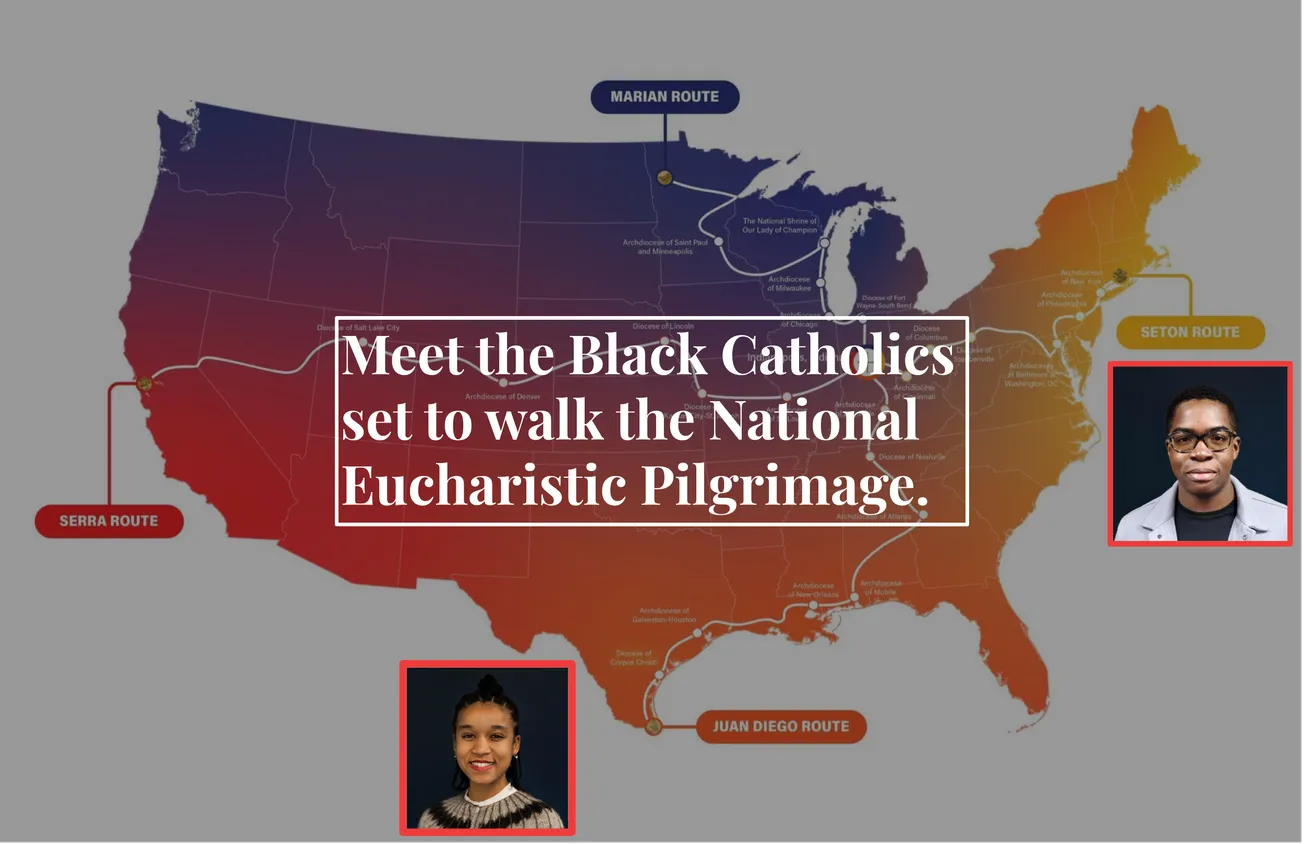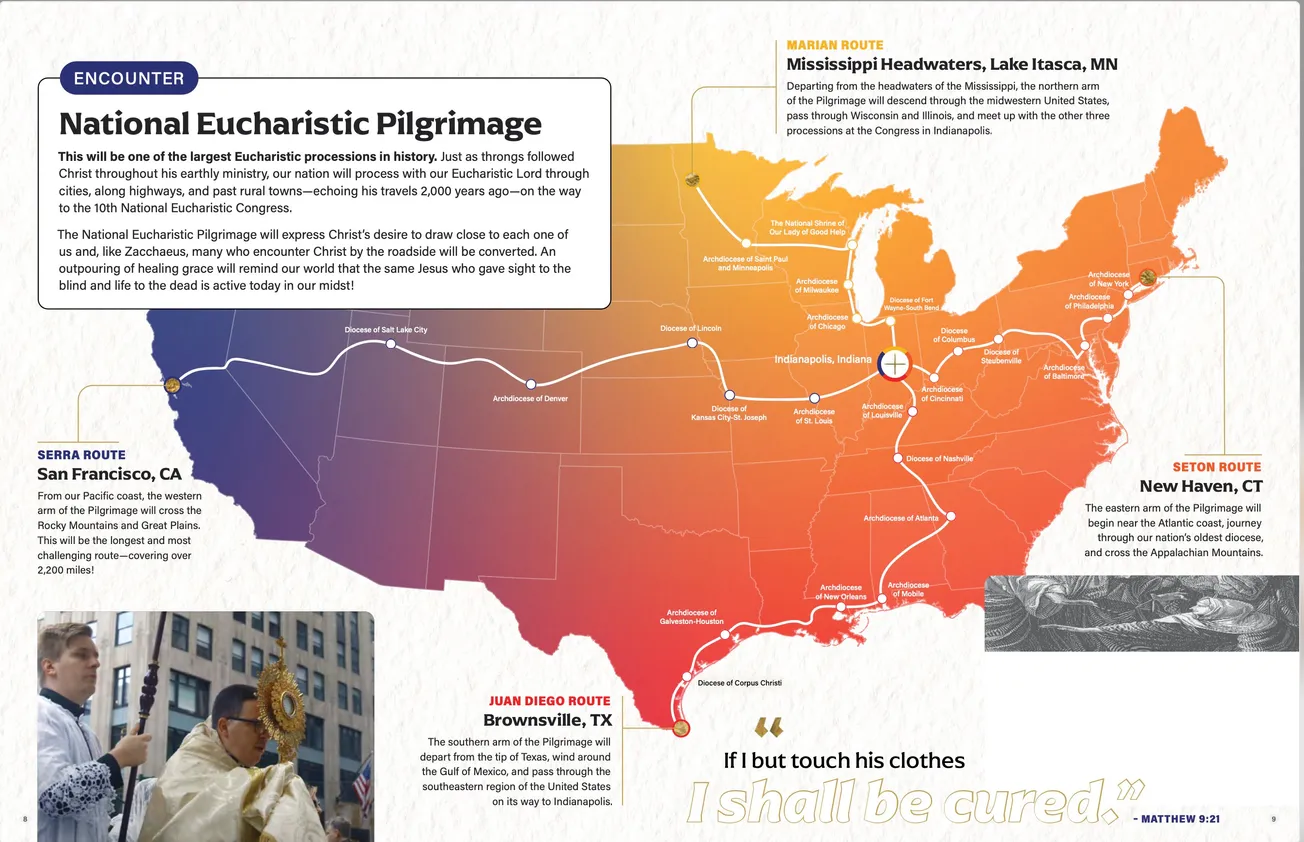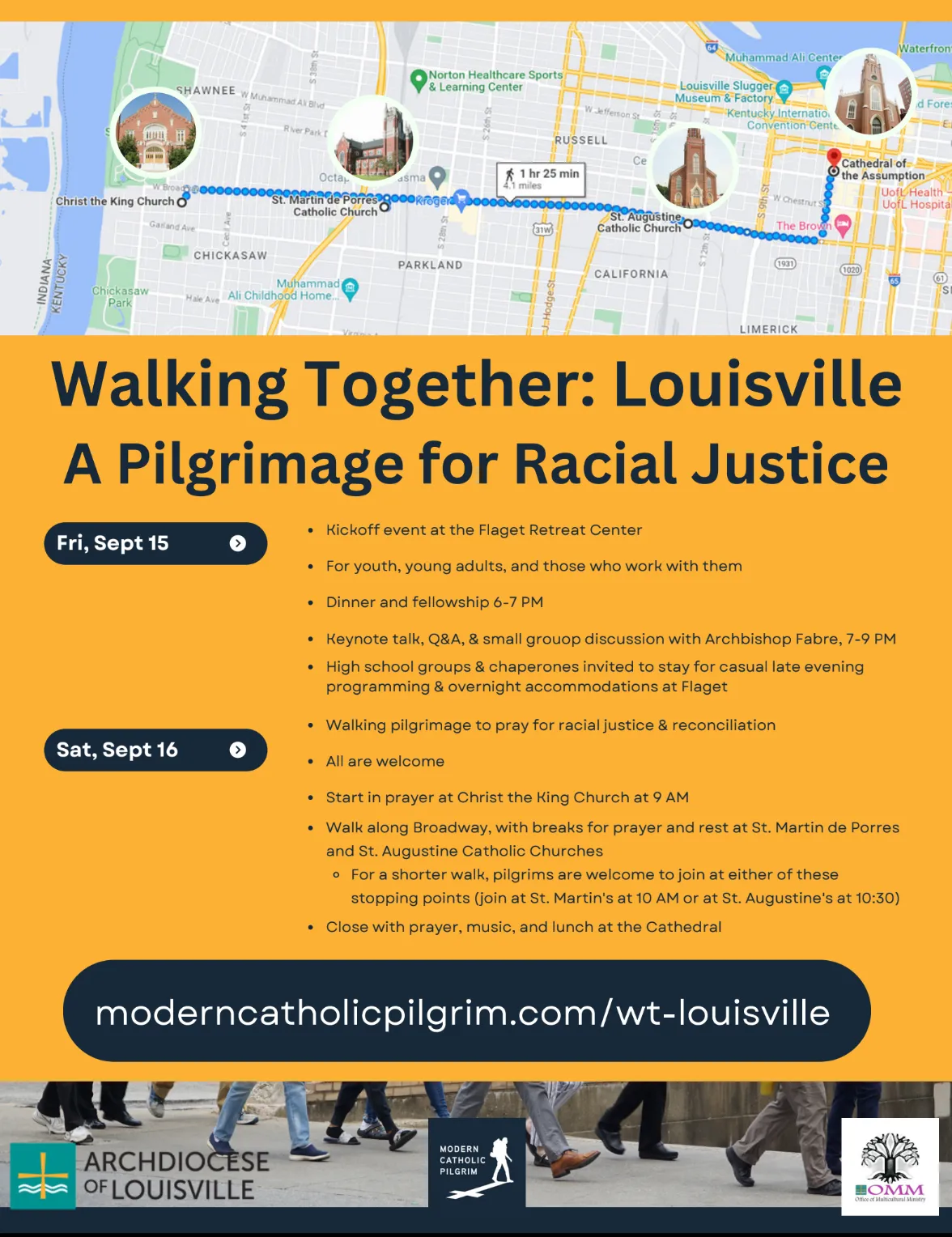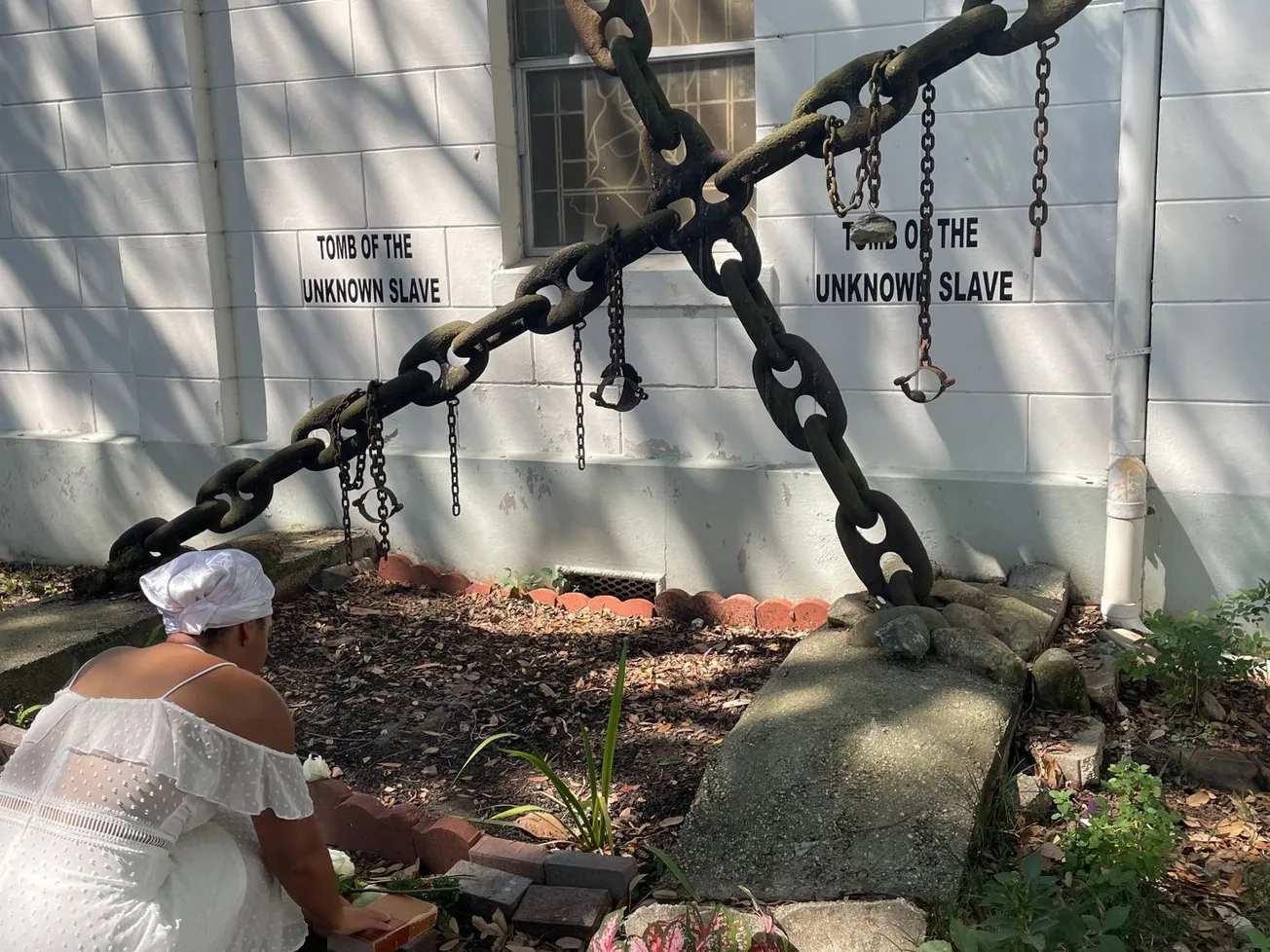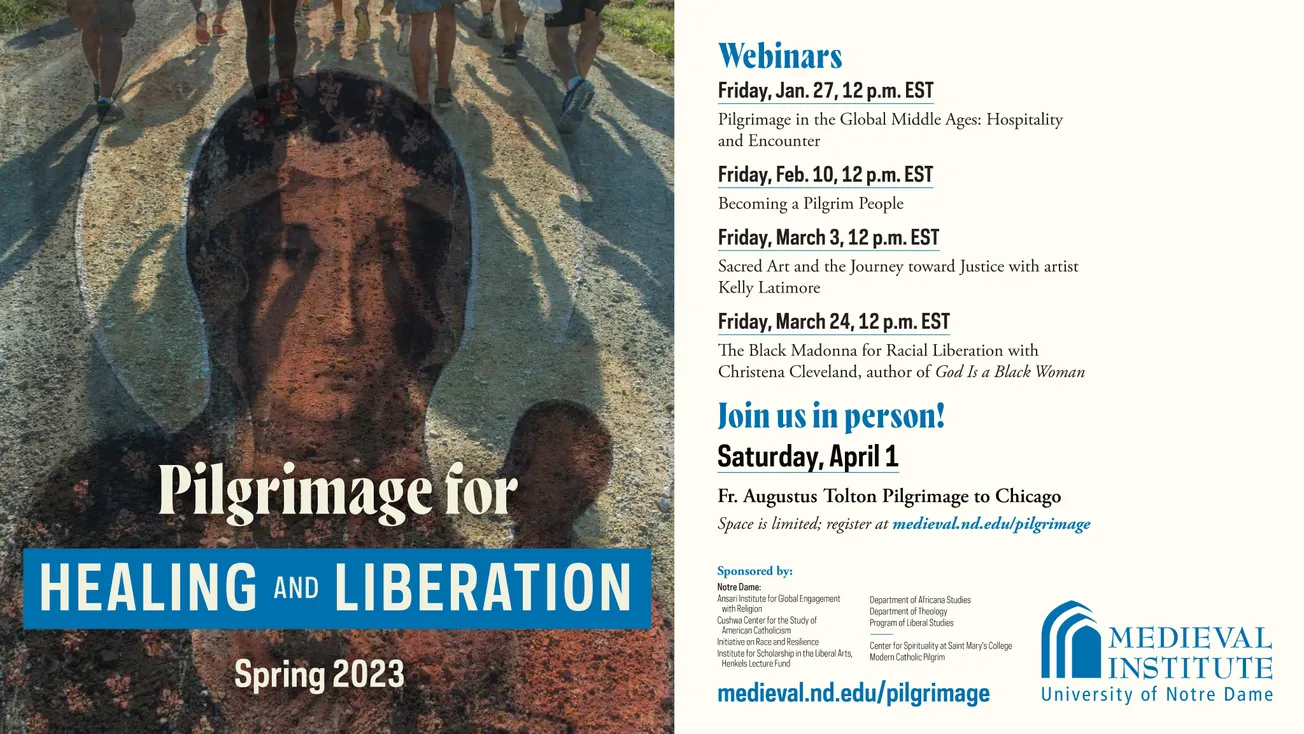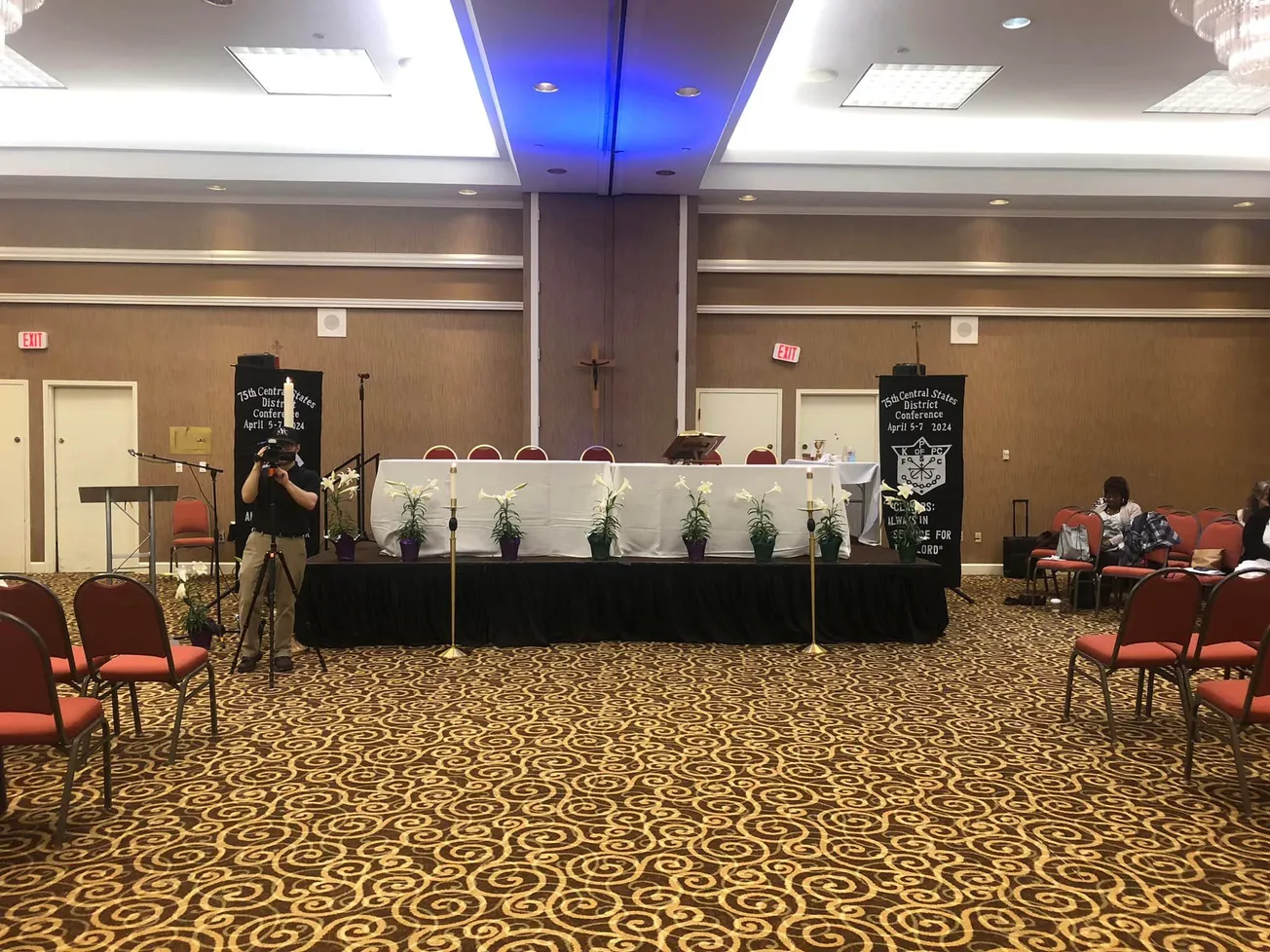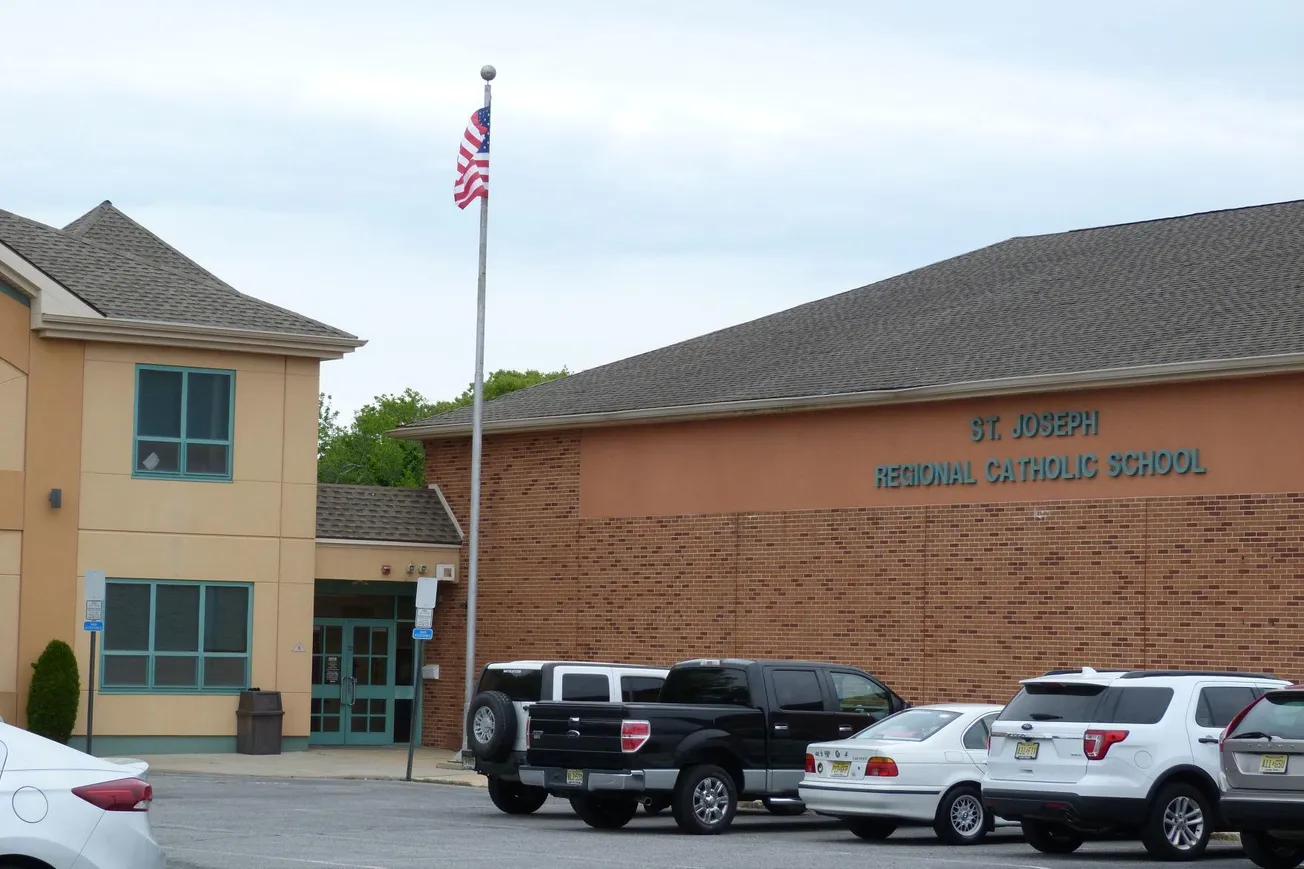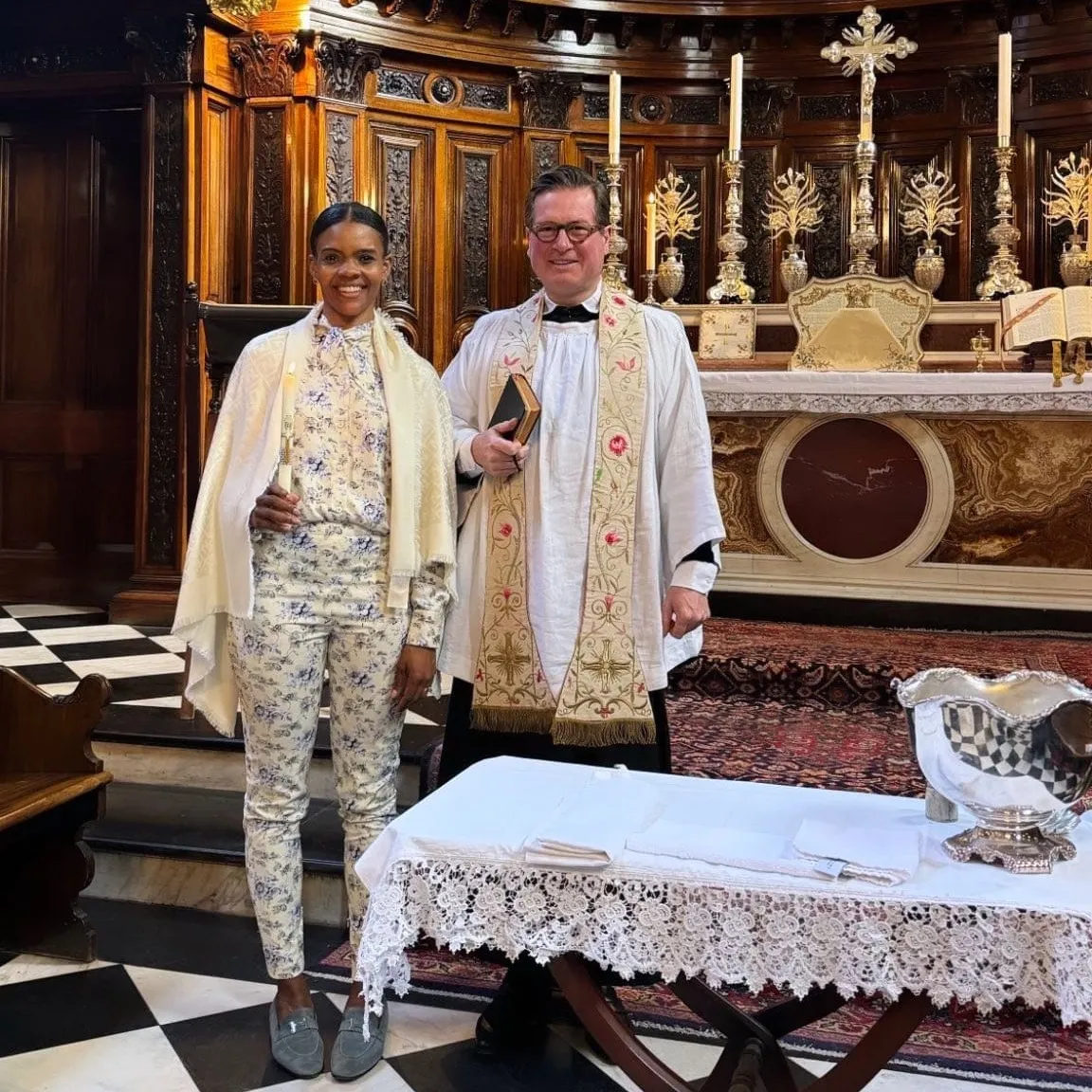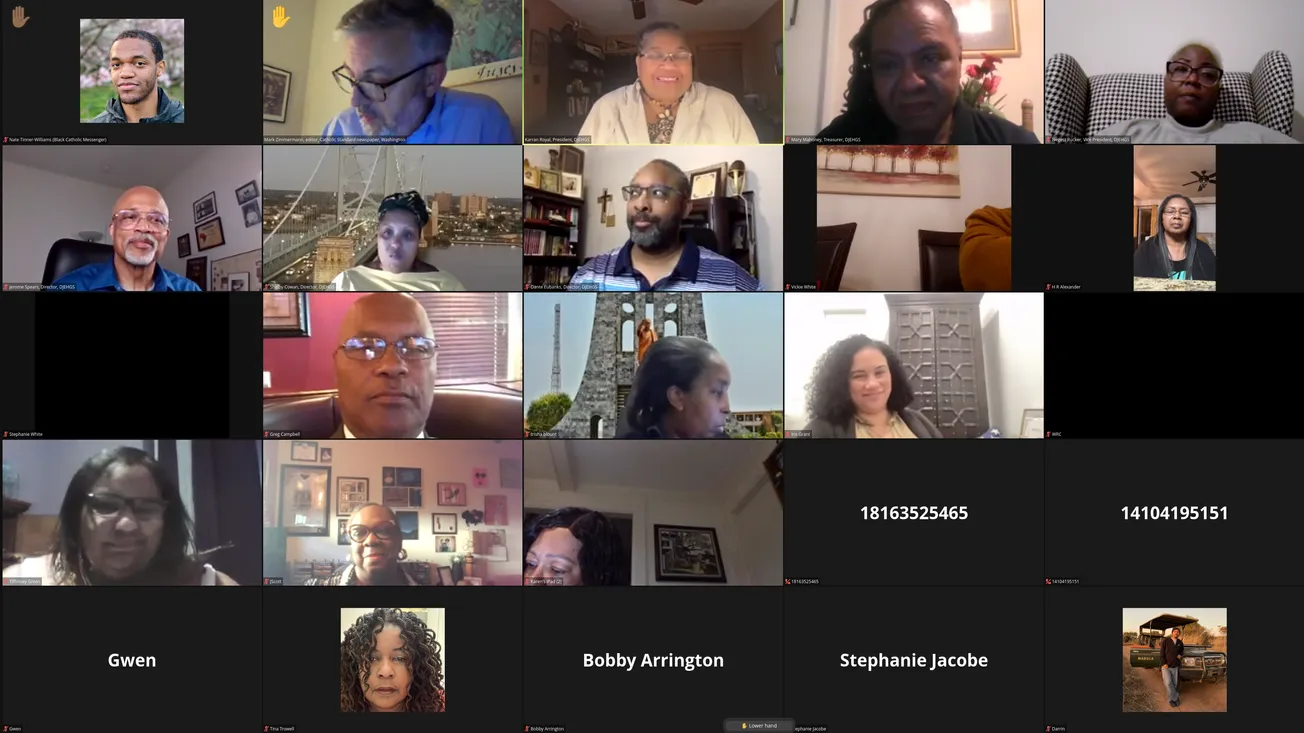Young adult Catholics who will take part in the National Eucharistic Pilgrimage (NEP) this year have been announced. The 24 “perpetual pilgrims” will trek across the U.S. on four respective routes for two months leading up to the National Eucharistic Congress in Indianapolis this July.
Two of the Black Catholics accepted for the initiative after applying last year spoke with Black Catholic Messenger this month about their anticipation of the historic—and hefty—journey before them.
Camille Anigbogu, a parish music director in Texas and recent college graduate, says she believes the pilgrimage is something of a culmination of her spiritual development, having been raised with dual Catholic cultures (Nigerian and Louisiana Creole) but coming into her own as a believer while in college.
“I really made my faith my own and I had really profound encounters with God that made me want to stay close to him and the Church,” she said, noting fondly her time with the Newman Center at the University of Houston.
Similarly to how her parents found commonality in shared faith despite their differing backgrounds, Anigbogu says the NEP will serve a similar purpose both for those making the pilgrimage and those who may encounter the routes as they progress from the four corners of the country.
“In our [American] culture, there's not much right now that unifies us. Sometimes we can't even agree on basic facts, much less subjective opinions about how things should be,” she said.
“So I think that when people encounter us and the Eucharist on the road, it will remind them that there's a possibility to be unified. And more importantly, I think it's going to be a source of hope and joy for people.”
Christopher Onyiuke, a Nigerian-American pilgrim from Orlando who studies at the University of Central Florida, said he felt the pilgrimage was “not something to miss.” He also echoed Anigbogu’s sentiments and noted positive interactions with NEP participants during a retreat hosted by Modern Catholic Pilgrim in February.
“The group is actually very diverse in where we come from. We're all very different… It just goes to show how different the faith looks person to person, church to church, diocese to diocese,” he told BCM. “We can all believe the same thing but coming to it differently or having learned about it differently isn’t a bad thing.”

Some of the Church’s diversity will be on display in the pilgrimage routes themselves, which will head to Indiana from California (St. Junipero Serra Route), Texas (St. Juan Diego Route), Minnesota (Marian Route), and Connecticut (St. Elizabeth Ann Seton Route) beginning on May 17. Roughly 85% of the stops have now been listed on the NEP website, where onlookers can find schedules and register for events with the pilgrims.
Anigbogu, who will be on the route originating in her home state, said she is excited to see sites connected to her own culture’s Catholic heritage. Stops include St. Mary’s Cathedral Basilica in Galveston, the city where in 1528, Europeans—including a Black Catholic—first landed in what would become the mainland United States, and St. Louis Cathedral in New Orleans, which houses the chapel of Venerable Henriette DeLille.
“I'm really excited for that part because I don't think the story of Black Catholicism gets told enough,” she said, adding that she may get a taste of family history as well.
“My mom is from Galveston. But my grandfather is from Lafayette, Louisiana, and that's one of our stops there in Louisiana. So I'm really excited about how I'll get to explore part of my history while being with Jesus.”
Onyiuke says he was drawn to apply for the Seton Route by the idea of seeing cultures different from his own. He is also interested in the stops related to important Catholic figures in history, including Seton herself and the colonial Catholic pioneers in Maryland. Similar to how the pilgrimage itself will help make Jesus physically present to the world, pilgrims will get an in-person experience of American Church history.
“I think it shows [the connection of] the tangible history of faith here in the U.S. to the intangible mysteries of what faith is,” Onyiuke said, “That what we believe, the forebears of this country and even our own ancestors would have believed the same thing.”
Have you ever been on pilgrimage? The National Eucharistic Pilgrimage website was just recently launched! Learn more about this pilgrimage that will span across the country, including stops right here in our #WashArchdiocese.https://t.co/Wu8A7mAKRs pic.twitter.com/KMH9IHPN2o
— Catholic Archdiocese of Washington, DC (@WashArchdiocese) June 4, 2023
Personal beliefs on matters of Catholic faith are, of course, the central idea behind the Eucharistic thrust seen among many U.S. Catholic bishops in recent years. A 2019 Pew Research study citing remarkably low belief in the Real Presence is thought to have prompted episcopal support for a national initiative in response, eventually leading to the three-year National Eucharistic Revival—which includes the Pilgrimage and Congress.
“Just as [Jesus] is here in my church, he’s also there in your church. He’s here with us along this trip,” Onyiuke said. “It really emphasizes for me how close Christ is physically, not God as this guy in the sky who’s just there and kind of looks down on us. I hope that’s something people learn personally.”
The various pilgrims will walk with the Eucharist through cities, major and minor, on their routes throughout the spring and summer months, some in more challenging climates than others. Required to be in good physical condition to be accepted into the initiative, they will likely experience a certain amount of fatigue as they journey, not unlike Jesus himself on the road to Calvary.
“When we were at our weekend retreat being formed by the bishops, we were taught how to poke blisters, because most of us will probably get them by the time this is done… We’re going to be Jesus crucified in some ways,” Anigbogu said, though careful not to leave out the positives of the upcoming journey.
“It will be a joyful amount of suffering that hopefully has a lot of repercussions and will do a lot of good for the Church and for America.”
Nate Tinner-Williams is co-founder and editor of Black Catholic Messenger.


